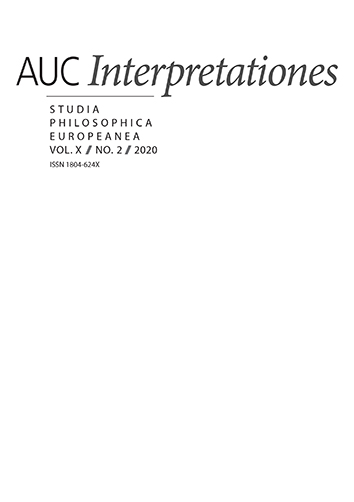Der Andere in mir. Zur phantasmatischen Bildung des Selbst in der Trauerarbeit bei Derrida
The outgrowth of edges: transcendental misalignment and phantasia
Author(s): Till HellerSubject(s): Structuralism and Post-Structuralism
Published by: Univerzita Karlova v Praze, Nakladatelství Karolinum
Keywords: transcendental misalignment; phantasia; Derrida;
Summary/Abstract: The article focuses on the phantasmatic constitution of the self in Derrida’s deconstructive work of mourning. In contrast to Freud, Derrida does not merely analyse inner-psychic mourning processes that only occur after a concrete experience of loss which can be successfully processed. Rather, he explores the possibilities of an ‘impossible mourning’ that always-already begins before the actual loss of a desired object and never comes to a closure. Because the phantasmatic incorporation of the transcendent other both opens up and undermines the subject’s self-relation in the work of mourning, it is assigned a quasi-transcendental status: quasi-transcendental insofar as the conditions of the possibility of being oneself simultaneously mark the conditions of the impossibility of having recourse to a self-present and self-identical subject. The aim is to work out the key role of Derrida’s modification of transcendental imagination, whose syntheses are at work in the spectral images of the other that haunt us in a ghostly way. As an image of the other within me that gazes at or affects me in the imagination and thereby conditions my phantasmatic constitution as a split self, its internalised trace forms the inaccessible place of self-formation in the work of mourning.
Journal: Acta Universitatis Carolinae Interpretationes
- Issue Year: 10/2020
- Issue No: 2
- Page Range: 122-138
- Page Count: 17
- Language: German

